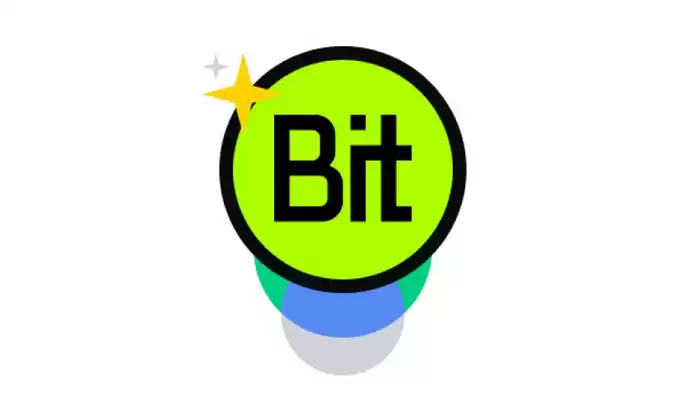-
 Bitcoin
Bitcoin $113900
-1.39% -
 Ethereum
Ethereum $3517
-4.15% -
 XRP
XRP $3.009
1.59% -
 Tether USDt
Tether USDt $0.9997
-0.04% -
 BNB
BNB $766.8
-1.41% -
 Solana
Solana $164.6
-2.38% -
 USDC
USDC $0.9998
-0.02% -
 TRON
TRON $0.3277
0.65% -
 Dogecoin
Dogecoin $0.2023
-1.67% -
 Cardano
Cardano $0.7246
0.05% -
 Hyperliquid
Hyperliquid $38.27
-4.77% -
 Sui
Sui $3.528
-0.52% -
 Stellar
Stellar $0.3890
-0.73% -
 Chainlink
Chainlink $16.16
-2.69% -
 Bitcoin Cash
Bitcoin Cash $539.9
-4.38% -
 Hedera
Hedera $0.2425
-2.00% -
 Avalanche
Avalanche $21.71
-0.97% -
 Toncoin
Toncoin $3.662
5.73% -
 Ethena USDe
Ethena USDe $1.000
-0.02% -
 UNUS SED LEO
UNUS SED LEO $8.964
0.35% -
 Litecoin
Litecoin $107.7
2.33% -
 Shiba Inu
Shiba Inu $0.00001223
-0.40% -
 Polkadot
Polkadot $3.617
-0.97% -
 Uniswap
Uniswap $9.052
-2.49% -
 Monero
Monero $295.1
-3.79% -
 Dai
Dai $0.9999
0.00% -
 Bitget Token
Bitget Token $4.315
-1.85% -
 Pepe
Pepe $0.00001060
0.11% -
 Cronos
Cronos $0.1342
-2.72% -
 Aave
Aave $256.0
-0.87%
How to store BitDAO coin?
BitDAO (BIT), an ERC-20 token associated with a decentralized governance organization, can be stored in various software (MetaMask, Trust Wallet, Exodus Wallet) and hardware (Ledger Nano X, Trezor Model T) wallets for safekeeping.
Nov 17, 2024 at 09:37 pm

How to Store BitDAO Coin
BitDAO (BIT) is a decentralized autonomous organization (DAO) and governance token for BitDAO, a community-led decentralized autonomous organization (DAO) focused on promoting the growth of decentralized finance (DeFi). BIT is an ERC-20 token that can be stored in a variety of software and hardware wallets.
Software Wallets
- MetaMask: MetaMask is a popular software wallet that supports BIT and other ERC-20 tokens. It is available as a browser extension and mobile app. To store BIT in MetaMask, create a new wallet or import an existing one, then add the BIT token address (0x1a4b46696b2bb4794eb3d4c26f1c55f9170fa4c5) to your wallet.
- Trust Wallet: Trust Wallet is another popular software wallet that supports BIT. It is available as a mobile app. To store BIT in Trust Wallet, create a new wallet or import an existing one, then add the BIT token address (0x1a4b46696b2bb4794eb3d4c26f1c55f9170fa4c5) to your wallet.
- Exodus Wallet: Exodus Wallet is a desktop and mobile wallet that supports BIT. To store BIT in Exodus Wallet, create a new wallet or import an existing one, then add the BIT token address (0x1a4b46696b2bb4794eb3d4c26f1c55f9170fa4c5) to your wallet.
Hardware Wallets
- Ledger Nano X: Ledger Nano X is a hardware wallet that supports BIT. It is a secure and convenient way to store your cryptocurrencies offline. To store BIT on Ledger Nano X, connect the device to your computer, install the Ledger Live app, and add the BIT token address (0x1a4b46696b2bb4794eb3d4c26f1c55f9170fa4c5) to your wallet.
- Trezor Model T: Trezor Model T is another hardware wallet that supports BIT. It is also a secure and convenient way to store your cryptocurrencies offline. To store BIT on Trezor Model T, connect the device to your computer, install the Trezor Suite app, and add the BIT token address (0x1a4b46696b2bb4794eb3d4c26f1c55f9170fa4c5) to your wallet.
Additional Tips
- Use a strong password: When creating a wallet, choose a strong password that is not easily guessed.
- Enable two-factor authentication (2FA):: 2FA adds an extra layer of security to your wallet by requiring you to enter a code from your phone in addition to your password when you log in.
- Back up your wallet: Always back up your wallet seed phrase or private key. This will allow you to recover your wallet if you lose your device or forget your password.
- Store your cryptocurrencies offline: The most secure way to store your cryptocurrencies is offline in a hardware wallet.
- Do your research: Before choosing a wallet, do your research to make sure it is reputable and secure.
Disclaimer:info@kdj.com
The information provided is not trading advice. kdj.com does not assume any responsibility for any investments made based on the information provided in this article. Cryptocurrencies are highly volatile and it is highly recommended that you invest with caution after thorough research!
If you believe that the content used on this website infringes your copyright, please contact us immediately (info@kdj.com) and we will delete it promptly.
- DeFi Token Summer Gains: Is Mutuum Finance the Real Deal?
- 2025-08-02 18:30:12
- Bitcoin, Realized Price, and the Top: Are We There Yet?
- 2025-08-02 18:30:12
- Dogwifhat (WIF) Rally: Will the Meme Coin Bite Back?
- 2025-08-02 19:10:12
- PayFi Heats Up: Tron's AMA Recap & TRX's Bullish Nasdaq Debut
- 2025-08-02 19:10:12
- ARK Invest, Coinbase, and BitMine: Decoding the Crypto Investment Shuffle
- 2025-08-02 19:15:23
- JasmyCoin Under Pressure: Bears Grip Tight, Testing Lower Support
- 2025-08-02 19:15:23
Related knowledge

What is Ethereum’s Slashing mechanism and how to punish malicious behavior?
Feb 20,2025 at 03:08am
Key PointsOverview of slashingDifferent types of slashing in EthereumIncentives and consequences of slashingIdentifying and reporting slashed validato...

What is the verifier node of Ethereum and how to become a verifier?
Feb 19,2025 at 06:00pm
The Verifier Node of Ethereum: A Comprehensive GuideKey Points:What is a Verifier Node?How to Become a Verifier NodeResponsibilities and Rewards of a ...

What is Ethereum’s staking, and how to participate and earn money?
Feb 19,2025 at 04:37pm
Key Points:Understanding Ethereum's Staking MechanismSteps to Participate in StakingBenefits and Rewards of StakingSecurity and Risk ConsiderationsTec...

What is Ethereum’s DAO (Decentralized Autonomous Organization) and how does it work?
Feb 20,2025 at 03:12am
Key PointsDefinition and Structure of a DAOGovernance and Decision-Making in DAOsBenefits and Use Cases of DAOsChallenges and Limitations of DAOsWhat ...

What is Ethereum's multi-signature wallet and how to improve security?
Feb 20,2025 at 02:18pm
Key Points:Understanding the Concept of a Multi-Signature WalletBenefits and Drawbacks of Multisig WalletsRequirements for Setting Up a Multisig Walle...

What is Ethereum's oracle and how to provide data for smart contracts?
Feb 21,2025 at 01:30am
Key Points:Understanding the concept of oracles in EthereumExploring different types of oraclesDetailed guide on how to provide data for smart contrac...

What is Ethereum’s Slashing mechanism and how to punish malicious behavior?
Feb 20,2025 at 03:08am
Key PointsOverview of slashingDifferent types of slashing in EthereumIncentives and consequences of slashingIdentifying and reporting slashed validato...

What is the verifier node of Ethereum and how to become a verifier?
Feb 19,2025 at 06:00pm
The Verifier Node of Ethereum: A Comprehensive GuideKey Points:What is a Verifier Node?How to Become a Verifier NodeResponsibilities and Rewards of a ...

What is Ethereum’s staking, and how to participate and earn money?
Feb 19,2025 at 04:37pm
Key Points:Understanding Ethereum's Staking MechanismSteps to Participate in StakingBenefits and Rewards of StakingSecurity and Risk ConsiderationsTec...

What is Ethereum’s DAO (Decentralized Autonomous Organization) and how does it work?
Feb 20,2025 at 03:12am
Key PointsDefinition and Structure of a DAOGovernance and Decision-Making in DAOsBenefits and Use Cases of DAOsChallenges and Limitations of DAOsWhat ...

What is Ethereum's multi-signature wallet and how to improve security?
Feb 20,2025 at 02:18pm
Key Points:Understanding the Concept of a Multi-Signature WalletBenefits and Drawbacks of Multisig WalletsRequirements for Setting Up a Multisig Walle...

What is Ethereum's oracle and how to provide data for smart contracts?
Feb 21,2025 at 01:30am
Key Points:Understanding the concept of oracles in EthereumExploring different types of oraclesDetailed guide on how to provide data for smart contrac...
See all articles

























































































